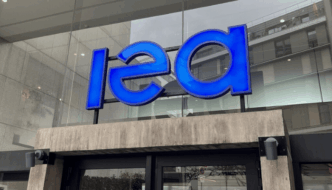The Alternative Bank (AltBank) has emphasised its commitment to tailored export-finance solutions for Micro, Small, Medium Enterprises (MSMEs) operating within different of the Nigerian economy: health, education, agriculture, renewable energy, and the transportation value chains.
The pledge comes on the backdrop of the ongoing Nigeria International Trade Fair (NITF) 2025, in what reinforces the bank’s role as a driver of economic expansion and catalyst for stronger trade systems in the country.
The NITF is being hosted at a pivotal time, with Nigeria’s trade potential poised for exponential growth. In 2025, the country’s merchandise trade reportedly soared to N38 trillion, setting the stage for a new era of export-led growth. Non-oil exports, particularly in agriculture and fertilisers, have seen remarkable uptake, opening doors to major markets across Asia and Europe.
By deploying its valuechain financing and non-interest models to support major indigenous agro-allied companies like JohnVents, AltBank is helping to unlock a meaningful portion of the trade flow and sustain this surge.
Speaking on the importance of platforms like the NITF, Korede Demola-Adeniyi, executive director, South, The Alternative Bank, stated that “Since inception, this fair has always represented a clear truth. When Nigeria trades, Nigeria grows and when our cities open their doors to innovators and investors, prosperity follows.”
Read also: N5m penalty clause raises tax compliance pressure for Nigeria’s MSMEs
“At the Alternative Bank, we believe finance should empower people. Through inclusive banking, we can unlock new wealth across communities and we are open to supporting communities that want to advance Nigeria’s trade potential without hidden fees or the burden of debt,” added Demola-Adeniyi.
Jumoke Oduwole, Nigeria’s Minister of Industry, Trade and Investment, acknowledged the contributions of Micro, Small and Medium Enterprises (MSMEs), stressing that they remain central to Nigeria’s economic development. She encouraged entrepreneurs to leverage the fair to explore innovations, products, and services.
“This trade fair complex was purpose-built to encourage trade and intra-African trade. The ministry is here in full force to support this revival and return it to its former glory,” Oduwole said.
Echoing this, Vera Ndanusa, Executive Director and CEO of the Lagos International Trade Fair Complex Management Board, said the fair aims to enhance Nigeria’s commercial landscape by showcasing technological advancements in digital trade and industry.
She added that efforts are ongoing to make participation more affordable for SMEs, women-led enterprises, and young entrepreneurs.
“Our goal is straightforward yet profound: to create and sustain an environment where trade thrives, businesses can scale, and investment can flow easily. We are not simply managers of physical space, we are custodians of a national gateway to economic opportunity,” Ndanusa said.
As Nigeria embraces a new era of growth, The Alternative Bank is leading the way with innovative financial models that support the country’s trade ambitions. By backing local businesses in export-driven value chains, the Bank is helping farmers move from raw commodity production to higher-value finished goods.
Through these efforts, The Alternative Bank is enabling access to equipment and clean energy solutions, to boost returns. The bank is also providing vital trade-finance support to businesses that are opening doors to global markets, equipping SMEs across Nigeria with the tools they need to scale, export, and create lasting value.









